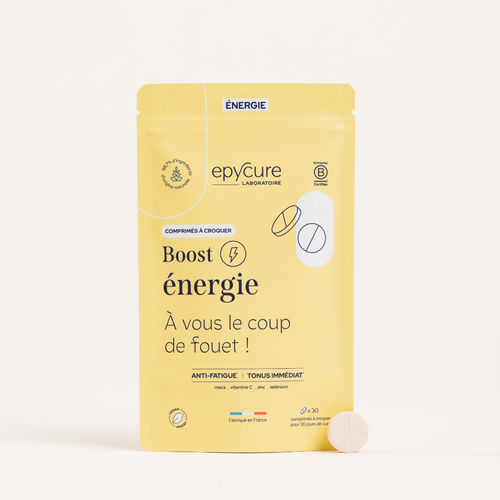Hello everyone,
Today is a special day for Epycure.
We are very proud to present to you the very first episode of our podcast, Le Club Bonheur .
In this episode, we talk more specifically about the impact of our nutrition and our lifestyle on our moods.
During this period of confinement, which can be particularly anxiety-provoking for many people, we share with you the techniques to adopt to soften our moods and our anxieties:
- Maintain a lifestyle while respecting your usual rhythms;
- Find tips for setting new goals;
- Get up and go to bed at the same times to get better sleep
Good quality: room at 18.5° and good quantity: between 8 a.m. and 9 a.m.;
- Do things that make us feel good (meditation, gardening, walking) and take care of ourselves (cooking good meals).
When it comes to nutrition, Angélique explains that it impacts moods through the gut microbiota. She emphasizes that eating should be a moment of pleasure, a time shared with family or friends. It's important not to approach nutrition in a guilty way.
On the menu, the foods to favor to boost your mood: vegetables, fruits, nuts, fish, spices, herbs. The bacteria that live in the intestine love fiber. Eating a variety of foods is the key to a healthy diet. In fact, in this episode, Angélique challenges us to eat 20 to 30 foods every week. So vary the flavors, diversify the colors, and stimulate your happy hormones!
Avoid industrial, ultra-processed foods and empty calories: foods with a lot of calories and few nutrients (sodas, prepared meals, etc.) to avoid energy slumps. During this podcast, we also address the subject of the famous "energy slump" after certain festive meals; very fatty, very sugary, very caloric meals. These require a lot of effort to be digested and greatly increase thermogenesis (increase in body temperature). Alcohol, for its part, increases the level of a neurotransmitter: GABA (the main inhibitor of brain activity) and makes us less responsive to activity.
Today, being isolated can become a source of stress; it's a healthy, survival response of the body. However, chronic, long-term stress can have harmful effects on health (digestive problems, depressive syndrome).
In a very representative way, Angélique explains to us how stress works in our brain. In summary, our body is governed by two autonomic nervous systems:
-
The sympathetic system , which prepares the body for action and which most often results in an acceleration of the heart rate;
- The parasympathetic system , which, stimulated by calm and relaxation, promotes relaxation and regeneration;
Overstimulation of one system weakens the other. These days, the sympathetic nervous system is overused, putting us in a state of constant stress, with muscle tension, insomnia, and anxiety. That's why it's important to find the right balance between the two! To do this, remember our neuroscientist's three pillars for good health: sleep, nutrition, and physical activity.
Finally, here are Angélique ’s answers to our “ Quizz Tonic ” (quick questions - quick answers):
- A book to recommend : “Why we sleep”, by Matthew Walker
- A food to always have in your fridge : Dark chocolate
- The ideal breakfast : A slice of wholemeal bread with mashed avocado
- An activity to relax : Go outside and contemplate
- Anti-stress tip : Breathe 3 times a day for 5 minutes
- One last piece of advice: Laugh a lot.
This is an episode to take care of yourself!
We're counting on you to give us feedback on social media. Tell us what you thought.
Available on your favorite podcast platform
Link to Apple Podcast
Link to Spotify
Link to Ausha
Link to Listen Note


